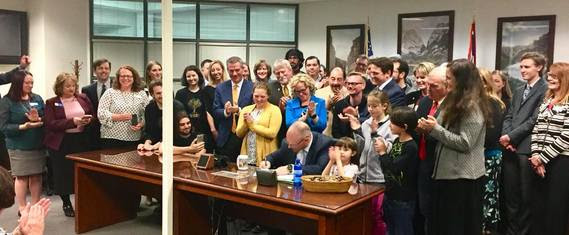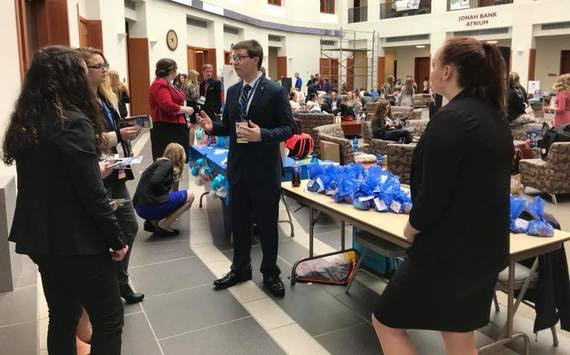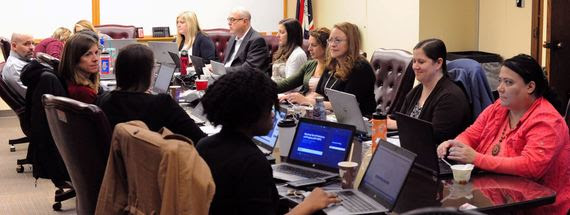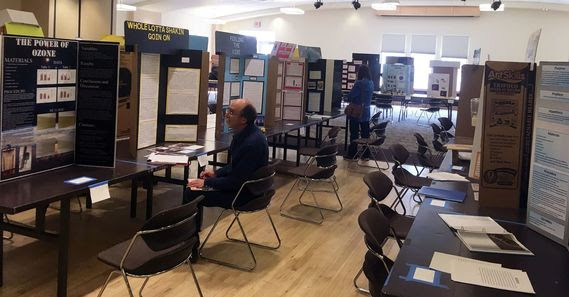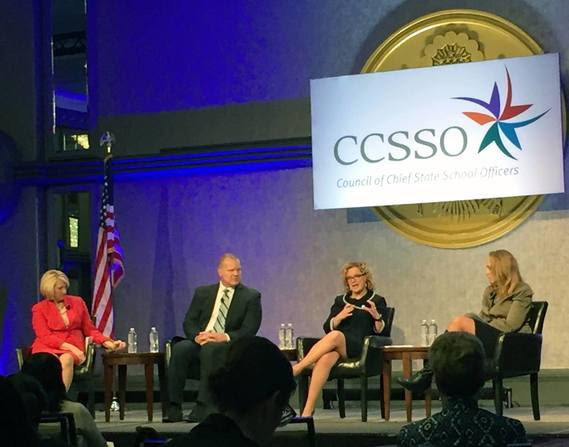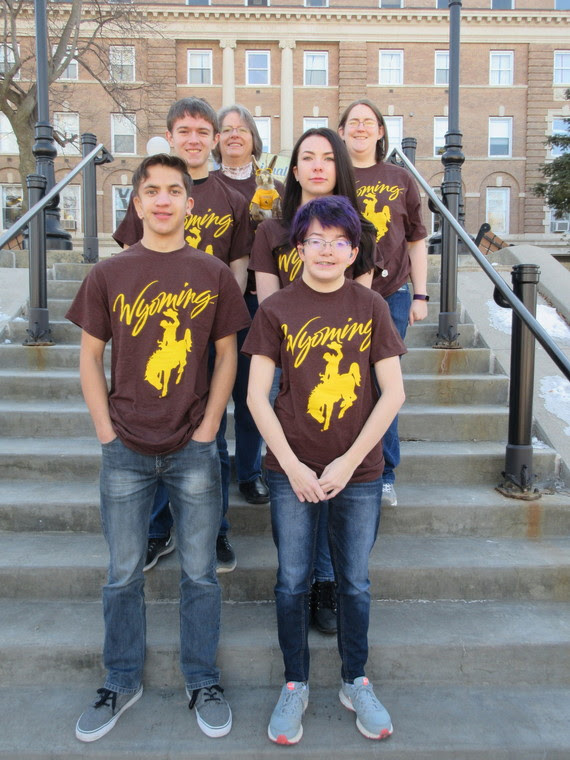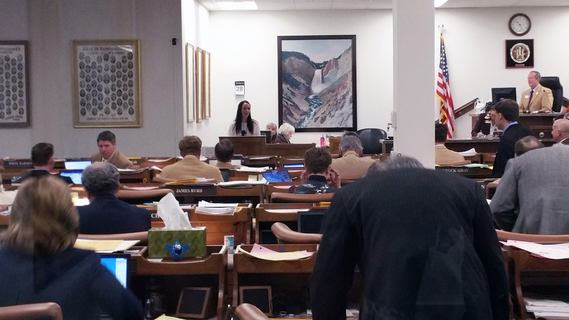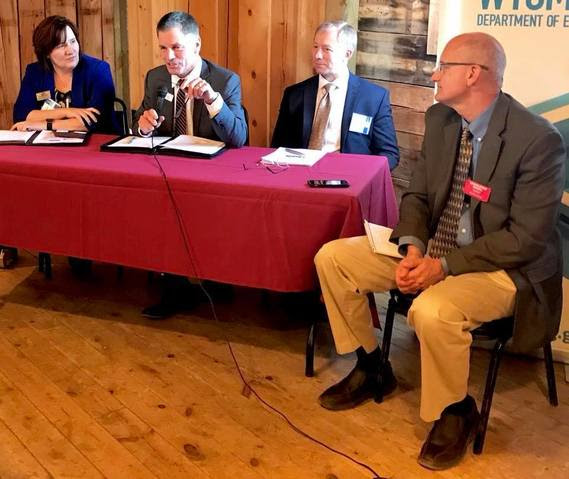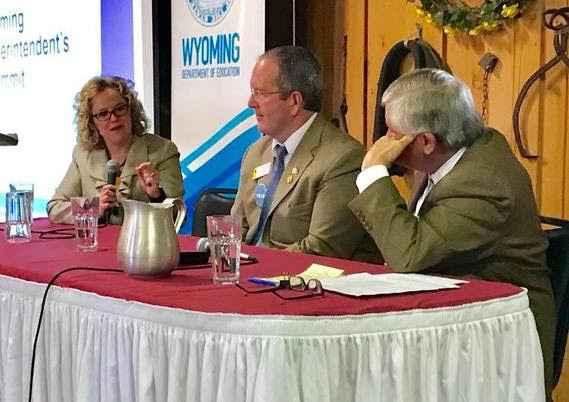CHEYENNE – Overall, Wyoming’s fourth and eighth grade students in 2017 continue to outperform national average test scores in reading and mathematics on the 2017 National Assessment of Educational Progress, known as the Nation’s Report Card or NAEP.
The Wyoming Department of Education (WDE) today released the state’s reading and mathematics results.
“NAEP provides an important independent look at how our schools are doing, and these results show that Wyoming schools and students have a lot to be proud of, particularly with fourth grade math,” said State Superintendent Jillian Balow. “Wyoming spends more per student than many states, and by equitably distributing those funds, we create opportunities for every student to be successful. Teachers have the funds and the support they need to make sure curriculum is aligned to assessments and the standards. As we move to a new statewide assessment that provides more data to teachers and takes up less time in the classroom, I am confident Wyoming will continue to be a national leader in education.”
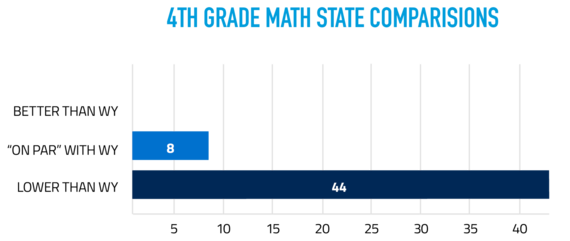
No state performed above Wyoming’s average NAEP score in grade four mathematics in 2017 (in 2015, two states had higher grade four math scores). Additionally, Wyoming was one of only six states with over 50 percent of students in the sample scoring proficient or advanced in grade four mathematics.
Another bright spot in the new results was an increase in grade eight mathematics scores for the state’s Native American students; their increased performance in mathematics during 2017 significantly reduced the achievement gap between Native American and White students in Wyoming as previously reported in 2015.
Overall, average reading and mathematics scores in Wyoming for both grades four and eight were statistically unchanged from NAEP results reported in 2015. Similarly over the four-year reporting period from 2013 to 2017, Wyoming results in reading and mathematics at both grades were statistically flat or unchanged.

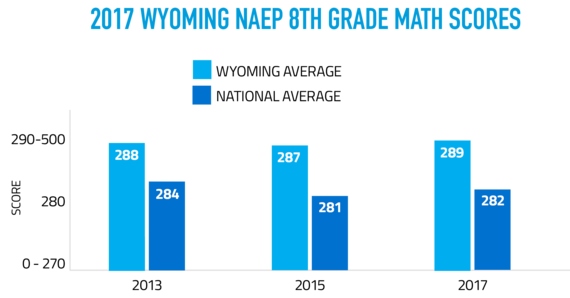
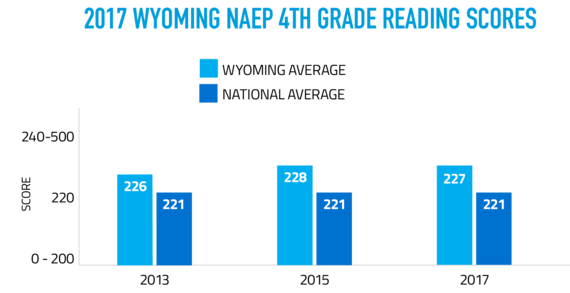
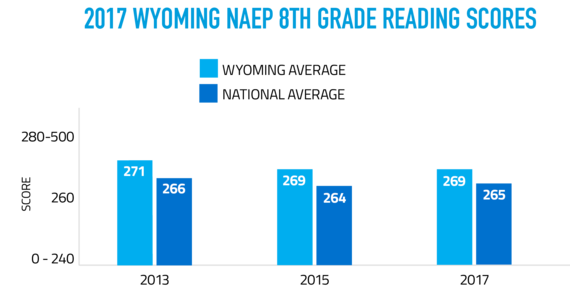
Unlike the state’s WY-TOPP census, which tests all students, NAEP is administered to a statistical sample of students and does not render individual test results for students or their schools. As such, NAEP data represent a sampling of Wyoming students and their responses.
NAEP testing is administered every two years in reading and mathematics to Wyoming’s fourth and eighth grade students. The 2017 results mark a shift in NAEP procedures from a paper-and-pencil testing format to digitally-based assessments. All fifty states participate in the assessment, as well as the District of Columbia and Department of Defense (DoD) schools. NAEP provides an external reference or point-of-comparison to audit, review, and compare each state’s educational program. Additionally, NAEP provides a stable trend line for tracking achievement during the current flux nationally in state testing programs.
For more details on Wyoming’s 2017 NAEP results and click the “2017 NAEP” button, or click on the links below:
Reading Report
Fourth Grade Reading
Eighth Grade Reading
Mathematics Report
Fourth Grade Mathematics
Eighth Grade Mathematics
– END –
Media Contact:
Kari Eakins, Communications Director
kari.eakins@wyo.gov
307-777-2053
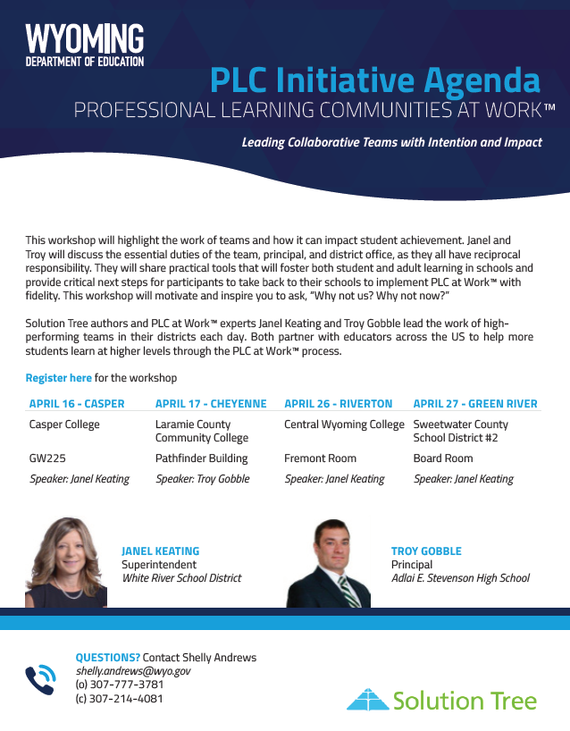

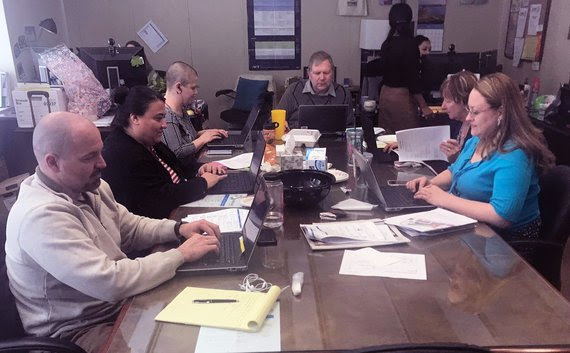
 CHEYENNE – The Wyoming Department of Education (WDE) announced today the launch of Boot Up Wyoming 2022, an initiative to implement computer science in all Wyoming schools.
CHEYENNE – The Wyoming Department of Education (WDE) announced today the launch of Boot Up Wyoming 2022, an initiative to implement computer science in all Wyoming schools.